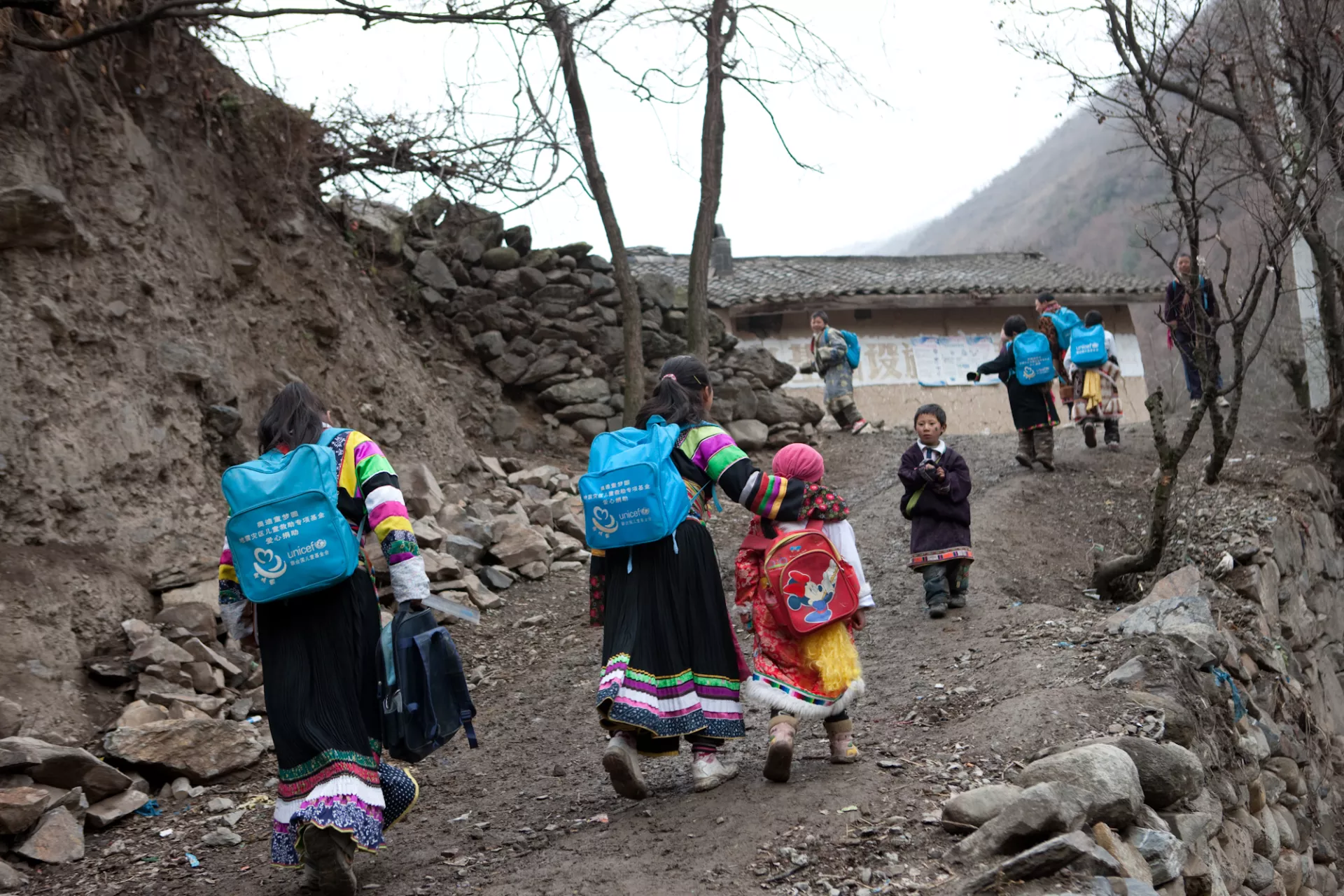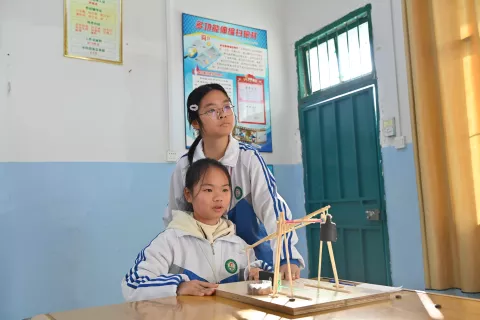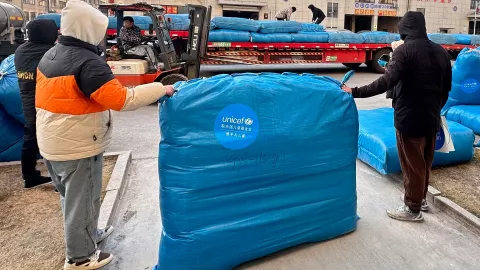Getting Children Back on the Road to School
Getting Children Back on the Road to School

- Available in:
- 中文
- English
Like generations of children in Caoyang Village before her, Yang Mei, 13, attended class in the local wood-and-brick school building. All that changed when the May 2008 earthquake brought down the roof of the school building and left large cracks in the walls.
"We were having class when the quake hit. The classroom was shaking and many students rushed out to the door," the sixth-grader recalled.
The quake damaged some 300 schools in Xihe County, including Caoyang Primary School where Yang Mei studied. Elsewhere in Gansu Province, the earthquake damaged more than 6,000 other schools.
After the earthquake, Yang Mei and her classmates resumed class in tents, but "it was too hot and we were all wet with sweat after staying inside for more than ten minutes."
Then, in October 2008, Yang Mei and her classmates moved into UNICEF-provided prefabricated classrooms. "The new classroom is more spacious and has better light," she smiled.
"Everything is new. The chairs, desks, books, and schoolbags are new. Each of us also got a hygiene kit. Inside each kit is a toothbrush, a tube of toothpaste, shampoo, soap and towels," she said. "But I like the schoolbag best. It has a dictionary, pens and notebooks."
Building a better life than before
Every morning, Yang Mei and her younger sister and brother use the UNICEF hygiene kits to brush their teeth and wash their faces. The children don't usually have breakfast before going to school. Their family, like most of their neighbours in the village, eat only lunch and dinner each day.
"Generally, we have potatoes for lunch and noodles for dinner. For eighty percent of the days in the year, we eat like this. It is only on holidays and Chinese New Year that we will celebrate by having some meat," Yang Jianguo, the father said.
Xihe County, which has a population of 400,000 and is located in southeastern Gansu Province, is one of China's poorest counties. The average annual net income per capita as of 2008 is no more than RMB 2000, or around 300 US dollars, about one tenth of Beijing residents.
Yang Mei's father used to work in Qinghai Province as a construction worker, only returning home twice a year. Yang Mei has a congenital heart defect and had surgery last winter. The operation cost the family RMB 33,000, about five to six years' worth of savings. The father didn't go back to his job after the surgery. The earthquake, which damaged their house and furniture, made life more difficult.
During class breaks, when all the children play with the new sports kits provided by UNICEF,Yang Mei stands aside quietly and watches.
"We used to make our own skipping ropes and footbags so we would have something to play with at school. But now we can play badminton and a lot more games and sports," Yang Mei said. When she finishes her post-operation course of medicine in another six months, she will be able to run and play just like the other children.
Clean water
In addition to restoring access to quality education services, UNICEF is working to establish clean water and hygienic sanitation facilities at Caoyang Primary School.
The earthquake damaged water supply systems, leaving children and villagers to fetch water from unprotected valley streams, or collect rainwater from rooftops and plastic sheets. Most schools had no clean water before the earthquake and had never been equipped with sanitary latrines.
Now, a year after the earthquake, a new handwashing facility connected to a safe water supply is under construction near the prefabricated classrooms in Caoyang Primary School. Sanitary latrines for boys and girls are also under construction. The UNICEF-supported water and sanitation facilities are expected to be complete in the coming months.
Yang Mei is one of the 10,000 children in 39 schools in Gansu's Xihe County that UNICEF is reaching with its complete package of educational and water and sanitation interventions.
"I am happiest when I am in class or playing with my classmates," Yang Mei said. "I want to become a teacher when I grow up."




